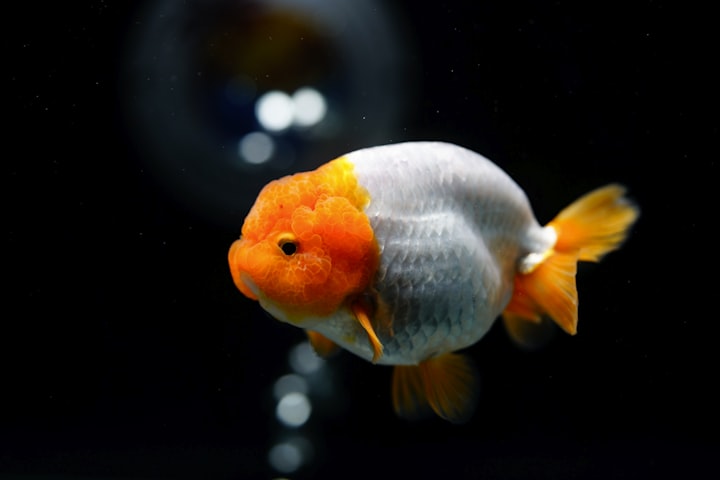Can Guinea Pigs Eat Apples?
A Nutritional Guide

Guinea pigs are adorable and social pets that bring joy to many households. Caring for a guinea pig requires a certain level of responsibility and commitment, as with any other pet. One of the most important aspects of caring for guinea pigs is providing them with a healthy diet that meets their nutritional needs. A balanced diet is essential for maintaining good health, preventing illnesses, and ensuring your guinea pig's long and happy life.
This blog post will explore whether guinea pigs can eat apples, a famous fruit many humans enjoy. We'll take a comprehensive look at the nutritional benefits and risks of feeding apples to guinea pigs and provide guidelines for incorporating this fruit into their diet. Whether you're a new guinea pig owner or an experienced one, this guide will help you make informed decisions about what to feed your furry friend.
Can Guinea Pigs Eat Apples?
Yes, guinea pigs can eat apples in restraint as a treat. Apples are a good source of vitamins and minerals for their health. One medium-sized apple contains approximately 95 calories, 25 grams of carbohydrates, and 4 grams of fiber. Apples also contain vitamin C, vital for guinea pig health as they cannot produce this alone.
Feeding apples to guinea pigs in moderation can offer several benefits. Apples are rich in antioxidants, which can help to strengthen the immune system and protect against diseases. The fiber in apples can also aid digestion and help prevent constipation. In addition, the natural sugars in apples can provide a quick burst of energy for your guinea pig.
While apples can be a healthy addition to a guinea pig's diet, it's important to note that they are also high in sugar. Too much sugar can lead to health problems such as obesity, diabetes, and dental issues. Additionally, apple seeds contain small amounts of cyanide, which can be toxic in large quantities. Therefore, removing the seeds before feeding apples to them is important. Finally, some guinea pigs may be allergic to apples or have digestive issues after eating them, so monitoring your pet closely after introducing this fruit to their diet is essential.
How Apples Affect Guinea Pig Health
Apples can provide several health benefits to guinea pigs when fed in moderation. As mentioned earlier, the vitamin C in apples is essential for their health as they cannot produce it independently. Vitamin C helps to boost the immune system, promote healthy skin and coat, and improve wound healing.
The Apple fiber can also aid digestion and prevent constipation, a common issue among guinea pigs. Additionally, apples' antioxidants can help protect against diseases and support overall health.
Despite the potential benefits of feeding apples to guinea pigs, some risks and adverse effects are also to consider. As mentioned earlier, apples are high in sugar. They should be provided in moderation to prevent health issues such as obesity, diabetes, and dental problems, which can cause discomfort and potentially lead to more severe health issues.
In summary, while apples can provide some health benefits to guinea pigs, monitoring their intake and awareness of any adverse effects is essential. Seek advice from a veterinarian before making any significant alterations to your guinea pig's diet.
Guidelines for Feeding Apples to Guinea Pigs
While guinea pigs can enjoy apples as a healthy snack, feeding them in temperance is important. Too much sugar can harm their health, so it's recommended to limit the serving size to a small piece of apple (approximately the size of a quarter) no more than once a week.
Before serving apples to your guinea pig:
- Wash them thoroughly to remove any pesticides or dirt.
- Remove the stem and seeds, as the seeds contain small amounts of cyanide, which can harm your pet.
- Cut the apple into small, bite-sized pieces to make it easier for them to eat.
Feeding apples to your guinea pig no more than once a week is recommended to prevent health issues from excess sugar intake. They can enjoy several other fruits and vegetables as a healthy diet. Some examples include carrots, bell peppers, and leafy greens. It's important to research and consults with a veterinarian to ensure that your guinea pig receives a balanced diet that meets its nutritional needs.
Other Fruits Guinea Pigs Can Eat
In addition to apples, there are several other fruits that guinea pigs can safely enjoy as part of a healthy diet. Some examples include strawberries, blueberries, raspberries, kiwi, papaya, and mango. These fruits are all low in sugar and high in vitamin C, fiber, and other vital nutrients that can support their health.
While apples are a good vitamin C and fiber source for guinea pigs, other fruits are even richer in these nutrients. For example, strawberries contain more vitamin C per serving than apples, and kiwi is even higher in fiber. However, it's important to remember that all fruits should be fed in moderation to prevent excess sugar intake.
Also Read: Why Fluffy Munchkin Cat Breeds Are the Best Pets?
When feeding fruits, introduce them slowly and in small amounts to prevent the digestive system. Always consult a veterinarian before significantly changing your guinea pig's diet. Be sure to provide a balanced mix of fruits, vegetables, and hay to meet their nutritional needs.
Vegetable Guinea Pigs Can Eat
Guinea pigs are herbivores, so their diet should consist primarily of hay, fresh vegetables, and some fruits. As a responsible owner, you must give your guinea pig a balanced and varied diet to ensure their health and well-being.
There are many vegetables that guinea pigs can safely eat, including:
- Leafy greens: such as romaine lettuce, spinach, kale, parsley, cilantro, and arugula.
- Cruciferous vegetables: such as broccoli, cauliflower, and Brussels sprouts.
- Root vegetables: such as carrots, sweet potatoes, and beets.
- Other vegetables: such as bell peppers, cucumber, zucchini, and tomatoes.
It's important to note that some vegetables, such as iceberg lettuce and potatoes, should be avoided or given in limited amounts due to their low nutritional value or high sugar and starch content.
Vegetables are an excellent source of vitamins, minerals, and fiber; they should make up most of your guinea pig's diet. While fruits like apples can provide some of these nutrients, they are also higher in sugar and should be given sparingly.
For example, one cup of chopped kale contains about 33 calories, 2.9 grams of protein, 6.7 grams of carbohydrates, and 2.6 grams of fiber, and it is rich in vitamin C, vitamin K, and folate. While both kale and apples are nutritious, vegetables like kale provide more essential nutrients per calorie than fruits like apples.
When feeding your guinea pig vegetables, providing them in appropriate serving sizes is essential to prevent overfeeding and potential health issues. The recommended serving size for vegetables is about one cup per day per guinea pig. You should also rotate the types of vegetables you offer to ensure your guinea pig gets various nutrients.
Foods to Avoid Feeding Guinea Pigs
Many foods are unsafe for guinea pigs and can cause health problems. Some of the foods that are unsafe for guinea pigs to eat include:
- Chocolate: Chocolate contains theobromine, which is toxic to guinea pigs and can cause digestive problems, heart issues, and even death in severe cases.
- Dairy products: Guinea pigs are lactose intolerant and cannot digest dairy products, which can cause diarrhea and digestive problems.
- Processed foods: Foods such as chips, crackers, and cookies are high in sugar, salt, and fats, leading to obesity, dental problems, and digestive issues.
- Meat: Guinea pigs are herbivores and cannot digest meat, which can cause digestive problems, bacterial infections, and even death in severe cases.
- Avocado: Avocado contains persin, a toxic substance to guinea pigs and can cause heart problems, breathing difficulties, and even death in severe cases.
The foods listed above are unsafe for guinea pigs for several reasons. For example, chocolate contains theobromine, which is toxic to guinea pigs and can cause heart problems, seizures, and even death in severe cases.
Processed foods are high in sugar, salt, and fats, which can lead to obesity, diabetes, and dental problems. Meat, which guinea pigs cannot digest, can cause bacterial infections, digestive issues, and even death in severe cases. Finally, avocados contain persin, a toxic substance to guinea pigs that can cause breathing difficulties, heart problems, and death.
Feeding unsafe foods to guinea pigs can have serious health consequences. Chocolate, dairy products, processed foods, meat, and avocados can cause digestive problems, heart issues, breathing difficulties, dental issues, obesity, diabetes, bacterial infections, and even death. In some cases, the effects of feeding unsafe foods may not be immediately apparent, but they can lead to long-term health problems that can affect your guinea pig's quality of life.
Wrapping Up
In conclusion, when fed in moderation, apples can be a healthy and tasty snack for guinea pigs. They are a good vitamin C and fiber source but limit the serving size to prevent excess sugar intake. Remember to remove the stem and seeds to avoid potential health risks.
If you need clarification on whether or not to feed apples to your guinea pig or have any questions about their diet or health, it's always best to consult a veterinarian. They can guide feeding, as well as recommend other fruits and vegetables that are safe and nutritious for your furry friend.
Overall, apples can be a healthy and enjoyable addition to your guinea pig's diet when fed in moderation and prepared correctly. Following the guidelines outlined in this article and seeking veterinary guidance when needed can ensure that your guinea pig stays happy, healthy, and well-fed.
👉 Do you have any additional insights or questions? We highly value your feedback. Please share your thoughts by leaving a comment below.
✅ Subscribe to our newsletter, and don't miss out on future blog posts with valuable insights.
About the Creator
Amir Hossain
I blog on everything and anything— hoping my blogs will make your days a bit happier!






Comments
There are no comments for this story
Be the first to respond and start the conversation.